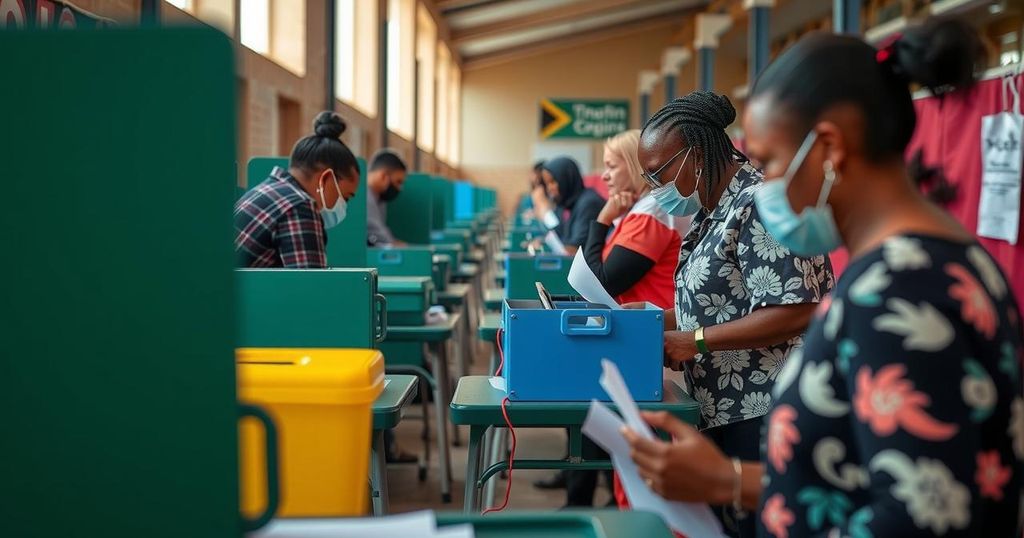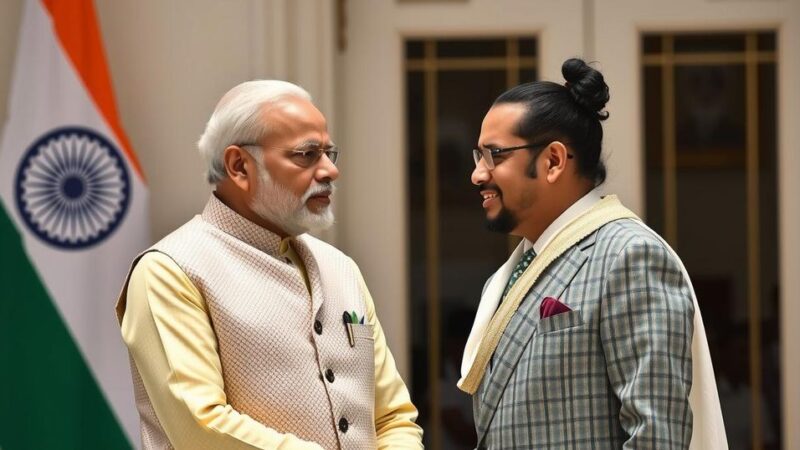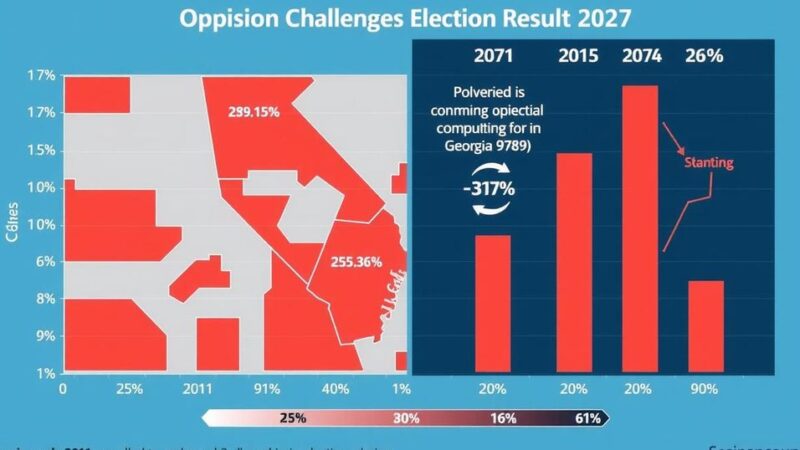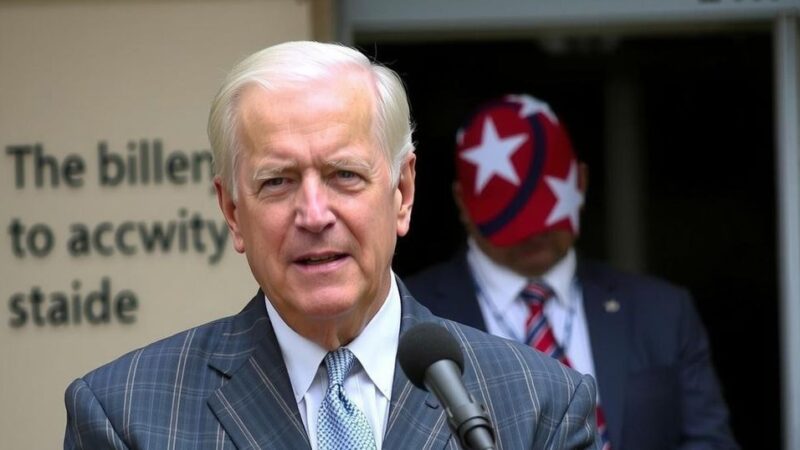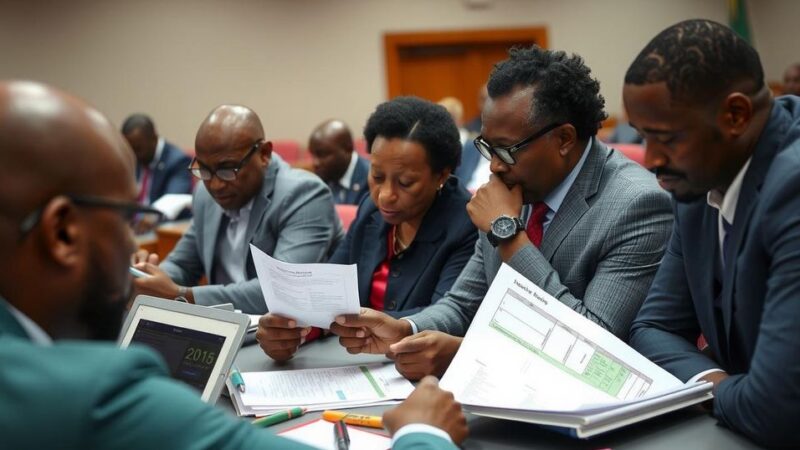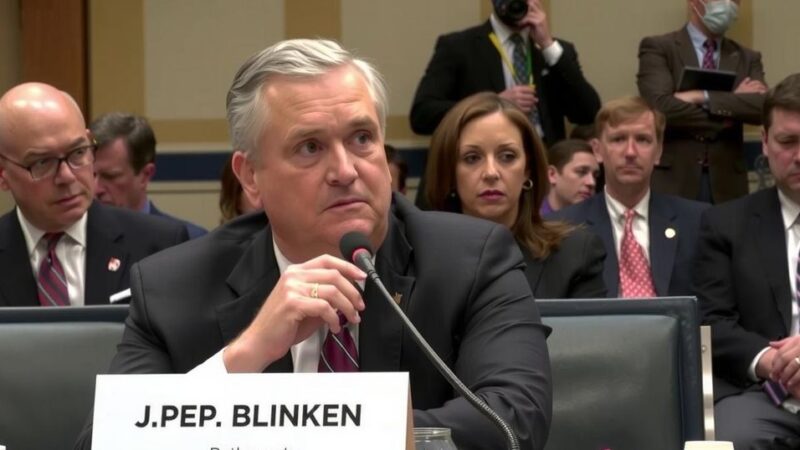Namibia has extended its election voting period due to technical issues and ballot shortages, prompting allegations of fraud from the opposition. Citizens are expressing discontent with voting logistics and broader economic challenges, while the ruling SWAPO party faces mounting frustrations from a youthful demographic seeking change.
Namibia’s electoral agency has decided to extend the voting period for the presidential and parliamentary elections until Saturday due to technical difficulties and shortages of ballot papers. This decision has been met with allegations of fraud from the opposition party Independent Patriots for Change, which claims the extension is unlawful. While the elections are occurring in a nation historically recognized for its stable democratic processes, frustrations over economic conditions, particularly among the youth, are rising.
The election, which was initially set to conclude on Wednesday, has drawn significant attention as critical polling stations reported running out of ballot papers, necessitating the extension. Long lines continued at polling stations on Friday, and many rural voting locations had not yet received the ballot supplies needed for citizens to exercise their democratic rights. Electoral Commission chairperson Elsie Nghikembua attributed the situation to various logistical issues affecting voter turnout.
Notably, Namibia’s most recent elections are juxtaposed against the backdrop of violent unrest in Mozambique, following allegations of electoral malfeasance. As the country moves towards a potential historic leadership transition, with Vice President Netumbo Nandi-Ndaitwah seeking to secure her position as the first female leader, the populace’s response reflects a broader discontent regarding opportunities in a resource-rich yet economically unequal landscape. Amidst the ongoing electoral challenges, citizens voiced their frustrations, echoing concerns about the integrity of the electoral process.
The decision to extend the voting period in Namibia highlights increasing tensions surrounding the electoral process, a shift from previously well-regarded democratic practices. The country, having gained independence in 1990, has been governed by SWAPO, a party synonymous with liberation from colonial rule. Recent elections have been trusted, but escalating dissatisfaction over economic opportunities and high unemployment, especially among younger citizens, complicates the current political landscape. Moreover, Namibia’s struggles resonate within the wider context of southern Africa, where long-standing political entities are facing growing challenges from disenchanted voters seeking tangible change.
In summary, the extension of voting days in Namibia due to ballot shortages has sparked significant opposition claims of electoral fraud, accentuating frustrations within the population towards longstanding governance. As the nation faces pressing social and economic issues, the upcoming results will determine whether the ruling party can maintain its grip or whether new political dynamics will emerge. This situation encapsulates broader regional trends where citizens are demanding more accountability and responsive leadership from their elected officials.
Original Source: abcnews.go.com
